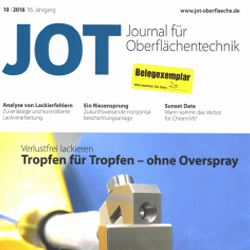In 2015 Eurosider initiated a scientific project made in CRISBA laboratories at “Leopoldo II di Lorena” Institute in Grosseto, on the benefits of cereals conservation in the controlled atmosphere rich in Nitrogen. Here is a report on a regional TV channel (in Italian):
Many factors can influence the quality of the cereals during the phase of storage, when they are subject to the aerobic erosion and pests or pathogenic fungi attacks. Some of the fungi are responsible for production of “mycotoxins”, toxic substances which are harmful to the health of humans and animals.
CRISBA experiments are aimed to verify, under the lab conditions in mini-silos, the effects of controlled atmosphere rich in Nitrogen on the prevention of cereals quality loss and on the growth of mycotoxins producing fungi and reproduction of the pests, during the storage phase.
Up to now, the Reserach Centre, in collaboration with Pisa University, has obtained interesting results that show the unchanged qualitative characteristics of cereals conserved in the controlled atmosphere rich in Nitrogen, along with the evidence of lower susceptibility of the cereals to some families of mycotoxigenic fungi. The Centre has also had interesting results of the efficiency of the system on the 100% mortality of the foodstuffs pests, such as wheat weevil (Sitophilus sp.) and flour beetle (Tribolium sp.).
In the video Lorenzo Moncini, a head of CRSIBA Research Centre, is being interviewed about the centre and its projects, together with two students involved into the research work. The particular feature of this Research Centre founded in 2010 is that it has a strong connection with a Professional Colledge of Agriculture and this allows the participation of students into real experiments, commissioned by external entities, like Eurosider. This creates a precious experience for the students. The main direction of all the Centre researches is about the agricultural innovation aimed on lower environmental impact. That is why the project in collaboration with Eurosider fits perfectly into the Research Centre’s vision, representing a possible way to decrease the environmental impact in the phase of storage.


